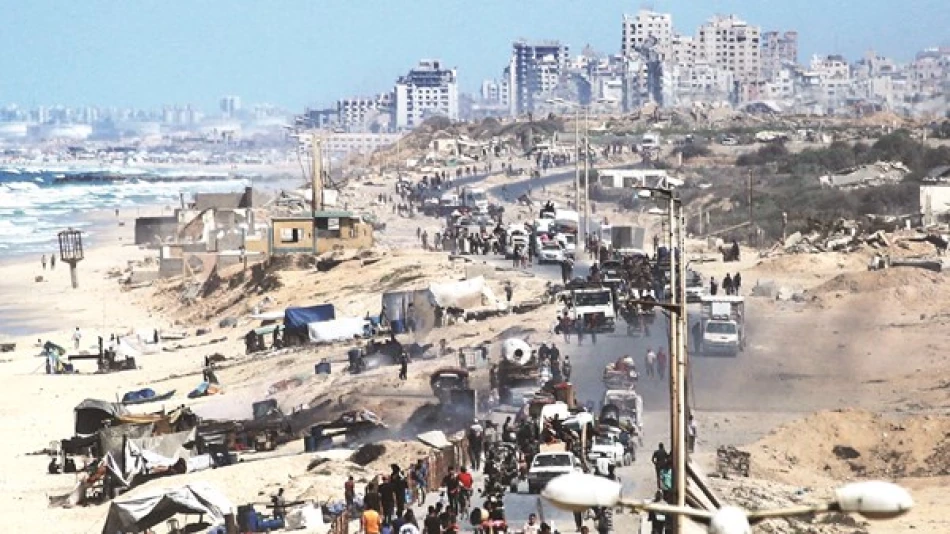
Gaza Residents Endure Two Years of Death and Forced Displacement, Red Cross Reveals
The International Committee of the Red Cross warns that Gaza's 2.4 million residents face a humanitarian crisis after two years of war, with basic services failing to meet the population's needs as the conflict's second anniversary approaches Tuesday.
Sarah Averlod, director of the Red Cross sub-mission in Gaza, described the situation in stark terms during a video statement posted on the organization's Facebook page. "For two years, civilians have endured death, forced displacement, and horrific deprivation of dignity," she said. "We have witnessed a complete emptying of the human spirit in Gaza."
The numbers tell part of the story. Thousands of Palestinians have been separated from their families, with many still listed as missing. But Averlod pointed to something harder to quantify - the visible toll on people's faces as they struggle to survive day by day.
Here's where the crisis gets more urgent: Gaza's remaining infrastructure can't support its population. Many civilians lack safe and regular access to water, sanitation facilities, and healthcare. The basic building blocks of society have crumbled under two years of conflict.
Averlod's field observations reveal the human cost behind these statistics. She described meeting mothers filled with panic, unsure how they'll feed their children or keep them safe. These conversations highlight how the crisis has moved beyond immediate war casualties to long-term survival challenges.
The timing of this warning matters. As the second anniversary arrives, international attention often shifts to other global issues. But the Red Cross assessment suggests Gaza's humanitarian needs are actually intensifying, not stabilizing. The gap between what people need and what's available continues to widen.
For aid organizations and international donors, this presents a complex challenge. Traditional emergency response assumes conflicts eventually wind down, allowing reconstruction to begin. But Gaza's situation defies that pattern, requiring sustained support for basic survival while active conflict continues.
Most Viewed News

 Layla Al Mansoori
Layla Al Mansoori






